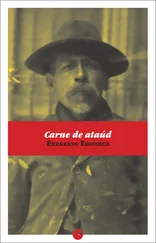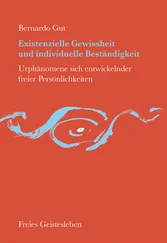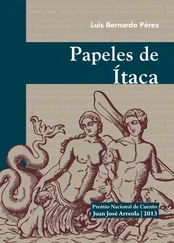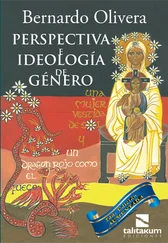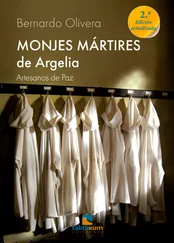Bernardo Atxaga - Obabakoak
Здесь есть возможность читать онлайн «Bernardo Atxaga - Obabakoak» весь текст электронной книги совершенно бесплатно (целиком полную версию без сокращений). В некоторых случаях можно слушать аудио, скачать через торрент в формате fb2 и присутствует краткое содержание. Год выпуска: 2010, Издательство: Graywolf Press, Жанр: Современная проза, на английском языке. Описание произведения, (предисловие) а так же отзывы посетителей доступны на портале библиотеки ЛибКат.
- Название:Obabakoak
- Автор:
- Издательство:Graywolf Press
- Жанр:
- Год:2010
- ISBN:нет данных
- Рейтинг книги:3 / 5. Голосов: 1
-
Избранное:Добавить в избранное
- Отзывы:
-
Ваша оценка:
- 60
- 1
- 2
- 3
- 4
- 5
Obabakoak: краткое содержание, описание и аннотация
Предлагаем к чтению аннотацию, описание, краткое содержание или предисловие (зависит от того, что написал сам автор книги «Obabakoak»). Если вы не нашли необходимую информацию о книге — напишите в комментариях, мы постараемся отыскать её.
Obabakoak
The Observer
Obabakoak — читать онлайн бесплатно полную книгу (весь текст) целиком
Ниже представлен текст книги, разбитый по страницам. Система сохранения места последней прочитанной страницы, позволяет с удобством читать онлайн бесплатно книгу «Obabakoak», без необходимости каждый раз заново искать на чём Вы остановились. Поставьте закладку, и сможете в любой момент перейти на страницу, на которой закончили чтение.
Интервал:
Закладка:
“So how’s life treating you?” Walter asked him one day, after writing a dedication to him in the book he had just published through the university. They were dining at the D’Angleterre, drinking French champagne.
“Very well indeed, since I met you.”
“I know that but what else, what’s your life like?”
And Heinrich replied: “Like that of a character in a novel.”
“Good for you! Novels are much more fun than essays,” laughed Walter, pointing to his book.
But Heinrich was mistaken. His life was very far from being a long novel, composed of fifteen, twenty, or forty chapters. Instead it was but a brief story that was hurtling toward its denouement. And this was perhaps his own fault because by then, absorbed as he was in his love affair, he had utterly forgotten that only sister of his, Margarete, thus calling down on himself — according to the harsh law that fairy tales apply to people who fail to keep their promises — an exemplary punishment at the hand of fate.
The cloud, the same cloud that wrapped about him and on which he had built his life, began to evaporate one night after a play he had gone to with Walter. Walking through the silent streets, they were making their equally silent way home, when suddenly a long whistle cut across the whole city.
“The train,” commented Walter and went on walking.
But Heinrich remained rooted to the pavement and a shudder ran through his whole body. That penetrating whistle was just a signal, a message with a rather anodyne meaning; but for him it was a song, a piece of dark, powerful music.
“Why have you stopped?” asked Walter, coming over to him.
“I want to hear it a second time,” he replied faintly.
And that second whistle came, filling Heinrich’s eyes with tears.
“Whatever’s wrong? Why are you crying?” said Walter, frightened. He took Heinrich’s face in his hands.
“It’s nothing. It’s just that suddenly I remembered something sad,” and, saying that, he buried his face in his friend’s chest.
Then, once he had pulled himself together, Heinrich linked what had happened with the circumstances surrounding the death of his sister.
“That’s why it affected me so deeply. Because it made me remember my sister. I haven’t thought about her for ages. It won’t happen again,” he added.
But that eminently sensible way of explaining the facts — even Walter agreed with him and recounted several similar cases — proved inadequate.
For, very soon, Heinrich had acquired the habit of spending all night walking the city streets, like a sleepwalker, with no other aim but that of hearing the train whistle, again and again. And he performed that ritual every night, not caring what or whom he had to leave to do so. Whether he was at a party or at Walter’s house, he always had to leave in the end. He could not resist the pull of that song.
The joy of those first days no longer glittered through Heinrich’s life. He grew taciturn.
“It’s true. I’m going through a bad patch,” he confessed one day when Walter came to visit him. He no longer went to the Atropos.
“And what about my house? You don’t even go there anymore. Can’t you bear to be with me either?”
“I will come, but later on, once I’ve got myself out of this hole.”
“Have you met someone else?” said Walter, lowering his eyes.
“No, that isn’t it. I just need to be alone.”
Walter wept, but in vain. Heinrich’s decision was absolute.
Winter came and the city grew even more desolate. When night fell, the drunks at the station seemed to be the only creatures alive in the city. Some, most, drank and got into brawls on the platforms; others tried to pick up the only woman who ever went there.
“Don’t stand there looking at the train wheels. Look at us,” they would say to her.
But Heinrich didn’t even hear them. He was waiting for the trains to arrive, waiting to hear the whistles blow; he did this punctiliously, drawing ever nearer. His whole life depended on it.
Shortly before Christmas, he received an official letter. The Bavarian judge wrote to tell him that Margarete’s death could not possibly have been murder.
“Therefore,” he stated, “we must assume that she committed suicide.”
Heinrich tore up the letter and threw it in the wastepaper basket. He didn’t need that fact confirmed. Then, perhaps for the last time, he headed for the station.
I, Jean Baptiste Hargous
I, JEAN BAPTISTE HARGOUS, a soldier since my thirteenth year, left my native city of Nancy on the fifth day of December in the Year of Our Lord eight hundred and sixty-seven and went off to fight against the Norman army under the blue and white flag of Lorraine. For the Normans had sacked both Blois and Orleans, cities with which we had the closest of ties, and Count Lothaire, lord of the realm and of our lives, a man of little patience, decided against remaining within the shelter of our city walls. And so, as I have said, on the fifth day of December we left, being in number two thousand men and seven hundred horses.
But it soon became clear that either Our Lord had chosen not to enlighten the Count or the Count had chosen not to listen to Him, for it was a bitterly cold winter; the winds were icy, the rains flooded the roads, and the snows covered the roofs of houses and the tops of trees. And although we prayed for the sun to come out again and for the sky above our heads to grow brighter and milder, the winter refused to relent and instead treated us ever more harshly.
After some ten days, when we were already far from the borders of our beloved land of Lorraine, and having lost along the way some forty men and more than twenty horses to sickness or ill fortune, we received the first news of our enemies, the Normans, from the lips of pilgrims.
“They are cruel and powerful,” they told us. “They’ll kill you the way dogs kill crows, and then they’ll burn your flag.”
And as we were weary and in a strange land, spirits fell, especially among the younger soldiers, and everyone longed to turn back. But Count Lothaire was either unaware of our wishes or else, knowing of them, chose not to grant them, for he ordered that we continue onward and march to the battlefield. He laughed as he said this, as if he were certain of victory and could already see the red blood of Norman soldiers spilled on the snow. But no one else saw what he did and the farther along the road we marched, the greater the impression our enemies’ reputation made on us. Women came to their windows when we passed and, with heartfelt sighs, begged us to withdraw; some came out of their houses and pleaded with the captains not to lead so many young soldiers to certain death. And when we stopped to rest at a monastery, the monks looked at us as if we were lambs on their way to the slaughterhouse and they prayed for our souls as if we had already died.
But Our Lord God never truly deserts us and even in the midst of the greatest misfortune He is able to offer us a little happiness, and, in His great bounty, that is what He did for me that winter. For He gave me a good and loyal friend: Pierre de Broc.
I saw him for the first time in the guest quarters of the monastery of St. Denis one night when I was unable to sleep. Pierre was alone in the empty room, sitting next to the burned-out fire playing the rebec and singing, and such was his skill in those two arts, it seemed a shame that, given the men’s weariness and the great cold, there was no one else there to hear him.
“Why are you singing? Why aren’t you sleeping, like all the other soldiers?” I asked him.
“Because I’m afraid,” he answered.
“So am I. I can’t sleep either,” I in turn confessed.
Читать дальшеИнтервал:
Закладка:
Похожие книги на «Obabakoak»
Представляем Вашему вниманию похожие книги на «Obabakoak» списком для выбора. Мы отобрали схожую по названию и смыслу литературу в надежде предоставить читателям больше вариантов отыскать новые, интересные, ещё непрочитанные произведения.
Обсуждение, отзывы о книге «Obabakoak» и просто собственные мнения читателей. Оставьте ваши комментарии, напишите, что Вы думаете о произведении, его смысле или главных героях. Укажите что конкретно понравилось, а что нет, и почему Вы так считаете.




